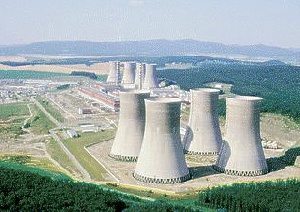Massive costs and a lack of specialists could scupper the nuclear ambitions of energy-starved Africa, where power shortages continue to hamper economic development, energy experts said on Monday.
Last week, Papa Owusu Ankomah, Minister of Education, Science and Sports said that government would soon begin consultations with the Ghana Atomic Energy Commission (GAEC) to determine how it would help generate nuclear power to supplement the hydro-electric power in order to reduce the energy crisis (read)).
He said a committee would be set up to look at the nuclear policy pertaining as a guide to make a firm decision to achieve the objective.
But delegates to a nuclear power conference said "Despite increasing world interest in nuclear power as an alternative to coal and oil-powered generation, Africa still had a way to go before it could join the nuclear club"
"In Africa there are parts where infrastructure doesn't exist and that's a large cost that has to be considered as part of a regional strategy to build important facilities," said Nils Breckenridge, marketing manager for Westinghouse, the U.S. power plant unit of Japan's Toshiba Corp.
Breckenridge said without "significant investments" the necessary infrastructure needed for nuclear technology in Africa would not be developed.
South Africa is home to Africa's only nuclear power plant at Koeberg outside Cape Town, and is developing new pebble-bed nuclear technology which it says will be more suited to developing countries.
Egypt, Nigeria and Tunisia have announced intentions to build nuclear power stations.
According to Rob Adam, chief executive of South Africa's Nuclear Energy Corporation, there are research reactors in South Africa, Egypt, Libya, Algeria, Nigeria, Ghana, the Democratic Republic of Congo and Morocco.
Fewer than 5,000 people work in the nuclear sector in Africa, excluding mining, compared to 70 000 in (world's biggest nuclear reactor manufacturer).

















